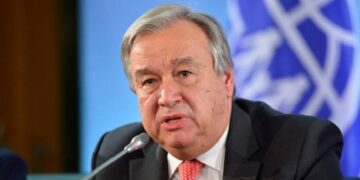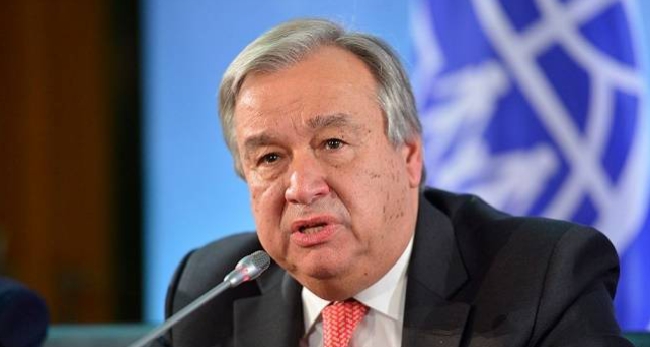By Enyichukwu Enemanna
United Nations Secretary-General Antonio Guterres will visit South Africa on Wednesday, weeks after it became the first African nation to assume the presidency of the G-20 economic bloc.
“The Secretary-General will underscore that, with South Africa taking the G-20 helm as the first African country to preside over the bloc, there is a significant opportunity for the G-20 to help advance Africa’s priorities,” UN spokesperson Stephane Dujarric told reporters while announcing the trip.
South Africa assumed the one-year rotating presidency on December 1, taking over from Brazil during the G-20 Summit in Rio de Janeiro last month.
The influential group includes members from both developing and developed nations, representing about 85% of global gross domestic product, over 75% of international trade, and about two-thirds of the world’s population.
President Cyril Ramaphosa stated that his presidency would focus on inclusive, sustainable development and reducing inequality while continuing much of the agenda set by Brazil.
During his one-day visit, Guterres is scheduled to meet with President Ramaphosa and other senior South African officials.
“Discussions will focus on global and regional issues, particularly South Africa’s G-20 presidency next year and its leadership on financing for development,” Dujarric said.
A senior U.N. official noted that South Africa’s presidency would spotlight development challenges across the African continent, especially the lack of sufficient financing for development.
On Thursday, Guterres will visit neighboring Lesotho, where he will meet King Letsie III, the prime minister, and address the parliament.
The UN chief will highlight the effects of climate change on Lesotho, a landlocked country entirely surrounded by South Africa.
“The visit to Lesotho is symbolic, as it is a small landlocked country that has suffered the dramatic impacts of climate change, costing African economies billions of dollars annually,” his spokesperson said.
Lesotho is experiencing increasingly dry and hot weather, which could significantly impact its water supply, according to the UN.

































